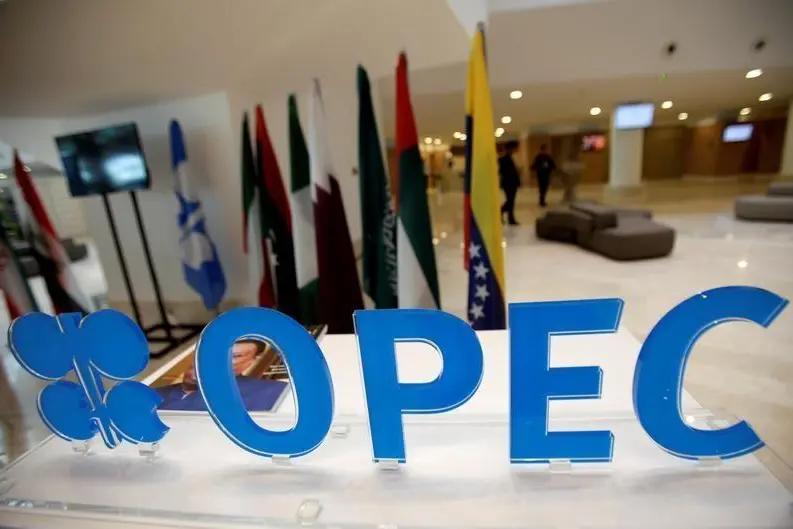PHOTO
As expected, OPEC+ unanimously agreed to keep its output strategy unchanged and decided to continue with its plans of gradually increasing oil production by 400,000 barrels per day in April 2022.
The decision was taken in what could be called one of the fastest meetings of the alliance, as it lasted only 13 minutes. OPEC+ producers have a clear vision building their consensus on market fundamentals away from any external pressures.
Though oil prices in February have been steeply volatile with a sharp upward movement of $15 per barrel, the oil producers’ alliance pointed to a well-balanced market, and that current volatility is not caused by changes in market fundamentals but is the result of recent geopolitical developments.
Ahead of the meeting, crude prices made a steep fluctuation not seen since the Abqaiq-Khurais attack, which took 5.7 million bpd of oil production offline — about half of Saudi Arabia’s oil output and 5 percent of the global supplies.
In the current scenario, any supply disruptions or suspension is likely to cause a severe shortage of oil that can be compensated by large producers, which will be around 3 million bpd from the Arabian Gulf and mainly from Saudi Arabia.
Amid the ongoing Russia-Ukraine conflict, an attack on oil supply facilities or infrastructure cannot be ruled out and it may cause a shortage of crude supplies in the market. OPEC+ should take into account this scenario and increase its level of preparedness to cope with such a situation.
The ongoing conflict has also introduced a risk premium in oil prices and the situation is likely to continue in the foreseeable future.
We should understand that it will be impossible to compensate for Russian crude oil of more than 3 million bpd. The Arabian Gulf crude grades can easily replace the Russian barrels in terms of crude quality for refining configuration. However, it is impossible to replace these barrels entirely in terms of volumes, especially because most of the Russian crude oil goes to Europe, the continent that receives the least crude from the Arabian Gulf producers who prefer Asia for better pricing realization (higher value).
This is also exacerbated because most of the crude oil that goes to Asia by Arabian Gulf producers are sold under unbroken contractual long-term agreements, unlike the Russian barrels that are mostly sold in Europe on spot basis at the mercy of oil traders and will be skyrocketed by war premiums.
This might further paralyze European refiners. Usually, war premiums are added to the official sales price and have a great impact on refiners’ decisions to load barrels from war zones.
The release of strategic petroleum reserves from member countries of the Organization for Economic Co-operation and Development and the lifting of sanctions on Iranian barrels will not be sufficient to compensate for a vast supply shortage from Russia.
Keeping in view these ground realities, it is necessary to take measures to protect the global energy system from the impacts of the Russian-Ukrainian crisis.
• Faisal Faeq is an energy adviser and columnist. He formerly worked with Saudi Aramco and OPEC Secretariat. Twitter: @FaisalFaeq
Faisal Faeq





















